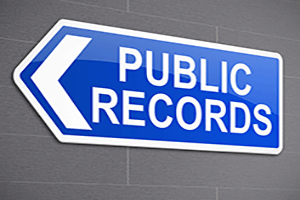Georgia Public Records
Public records are documents and information created and maintained by government agencies that are available for public access. In Georgia, the records that are made public are to allow general access to view information that the government collects on it's citizens. In essence, these records also create transparency and accountability within government operations and allow citizens to review and examine without having to get special permission. This is a defining quality of a successful democracy.
Georgia public records encompass a wide range of categories, including criminal records, court records, vital records, and property records. Each type of public record serves a specific purpose and can be accessed through different channels. This article will explore the types of public records available in Georgia, how to search for them, and the laws governing public access.
Categories of Public Records in Georgia
While there are a multitude of categories of publicly available information, these are the most commonly searched for pieces of information in the state. These records are all publicly accessible, with the exception of those specific records that are sealed for privacy reasons. Here is an outline of the various public record categories.
1). Criminal Records: There are various criminal records that include information about arrests, criminal court proceedings, convictions, sentencings, warrants, and incarcerations. These records are typically maintained by the respective agencies. These agencies may include various law enforcement agencies, the Department of Corrections, and the Georgia Crime Information Center (GCIC). Criminal records are important for a multitude of reasons such as background checks and personal inquiries.
2). Court Records: Court proceeding, dockets, and records provide details about civil, criminal, family, and traffic cases. These records include case filings, judgments, outcomes and sentencings. Court records are maintained by the state's judicial website, or individual courts where the cases are heard, such as superior courts, state courts, and magistrate courts.
3). Vital Records: Vital records refer to documents of life events, such as birth certificates, death certificates, marriage licenses, and divorce decrees. The GA Department of Public Health’s Vital Records Office oversees the maintenance and distribution of these records.
4). Property Records: All property records provide information about property ownership, land deeds, mortgages, and tax assessments. These records are maintained by county tax assessors and clerks of the superior court. Property records are often used by real estate professionals and potential home buyers.
5). Incarceration Records: These records detail the status of people that are incarcerated in state and county prisons and jails. The GA Department of Corrections maintains a searchable database of current inmates, parolees, and those on probation.
6). Business Records: Business-related public records include information about business registrations, licenses, and corporate filings. These records are maintained by the Secretary of State's Office.
7). Government Meting Minutes: Many local, county, and state governments hold public meetings that are accessible online through video and transcripts. These are called meeting minutes. These can be accessed through the various government agency websites, such as the Department of Public Safety. Sometimes they are posted online, but if not, they will be made available upon request.
How to Search Georgia Public Records
Searching for public records in Georgia can be done online or in person, depending on the type of record. Many government agencies offer online databases that allow individuals to search for specific records.
1). Criminal Records: Individuals can request criminal history records through the GCIC’s online portal or by submitting a request to the local law enforcement agency. Employers may also make official criminal history reports for background checks through authorized agencies.
2). Court Records: To access court records, individuals can visit the courthouse where the case was heard or use online platforms such as the Georgia Judicial Gateway, which provides access to a variety of court records.
3). Vital Records: Requests for birth, death, marriage, and divorce records can be made through the GA Department of Public Health’s Vital Records Office either online or in person at a local health department.
4). Property Records: Most property records can be searched through county tax assessor websites or by visiting the county clerk’s office. Some counties also offer online search tools for property deeds and assessments.
5). Incarceration Records: The GA Department of Corrections provides an inmate search tool on its website, allowing individuals to look up current inmates by name, case number, or identification number.
6). Business Records: The Georgia Secretary of State’s website offers a searchable database for business records, including corporate filings, business licenses, and professional registrations.

Georgia Public Record Laws
Public access to government records in Georgia is allowed by the Georgia Open Records Act. The foundation of the law is to create transparency and accountability in how the various government agencies collects and uses information on it's citizens. This law allows anyone to request and obtain public records from state and local government agencies, even if you reside outside the state. Under the Open Records Act, most records are available for public viewing, unless sealed for privacy reasons.
Key Provisions of the Georgia Open Records Act
1). Right to Access: The Georgia Open Records Act gives the public the right to access records held by government agencies. Agencies must respond to requests within three business days, and records must be made available unless they are exempt from disclosure.
2). Exemptions: Some records are exempt from public access under the law. These exemptions include confidential personnel files, certain law enforcement records, medical records, and documents that may compromise public safety or security.
3). Fees: Government agencies are allowed to charge reasonable fees for the retrieval, copying, and distribution of public records. However, the fees must reflect the actual cost of producing the records and cannot be excessive.
4). Electronic Records: The law covers both physical and electronic records. This means that emails, text messages, and other electronic communications related to government business are subject to public records requests.
5). Appeals: If a public records request is denied, individuals have the right to appeal the decision. The denial must be in writing, stating the legal basis for the refusal.
How Do I Lookup Georgia Public Records?
You can lookup most any public record in Georgia by contacting the respective government agency and making a public records request. For example, if you want to lookup someone's public court records, you can visit the Georgia Judicial Website and lookup court cases by name or case number. You can also use a public records website to access all of someone's public records, often called a public record abstract. This will essentially be like running a background check on someone which will show criminal and court records, marriage and divorce records, driving records, traffic citations, property records, and more.

